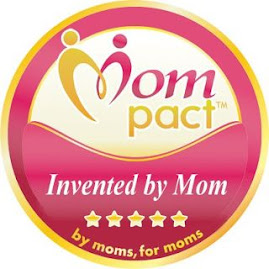I came across this article today and found it quite interesting. Not because of the results their research found but because I was a bit surprised at how they conducted their survey. I have to agree that a father has influence over a mother's decision to initiate and/or sustain breastfeeding. I myself turned to my husband when breastfeeding was not going as easily as I had hoped.
I also agree that "Working with the couple rather than simply with the mother in breastfeeding education is important." It should not surprise me that we have such low breastfeeding rates here in the U.S. compared to other countries because we do not have a great program that does this.
So, this article from the Fatherhood institute (based out of UK I believe) sites research that was conducted by giving fathers extensive classes on breastfeeding (see specifics below). This surprised me initially as I question how many fathers would really participate. I wish I could be a fly on the wall when they taught fathers how to prevent and manage the most common lactation difficulties! I think the idea is great though and hope this helps boost breastfeeding success rates. What do you think?? Was your husband a factor in your breastfeeding journey?
Check out some of their results:
• A randomized controlled trial of a two-hour pre-natal intervention with fathers consisting of infant care information as well as encouragement for fathers to advocate for breastfeeding and assist their partner, resulted in 74% v. 41% breastfeeding initiation among women whose partners had attended the class, in comparison with the controls (Wolfberg et al, 2004)
• In Italy Piscane et al (2005) found that teaching fathers how to prevent and manage the most common lactation difficulties had a marked, positive impact on breastfeeding continuation. Only 15% of mothers whose partners had been simply told about the benefits of breastfeeding were still breastfeeding at six months; but when the men were individually coached for just 40 minutes on managing common problems (such as pain and discomfort, fear that baby isn’t ‘getting enough’ and breastfeeding-issues when mum returns to work) the percentage of mothers still breastfeeding at six months was 25%. The impact was particularly strong among women who had reported difficulties with lactation (4.5% v. 24%).
• An established workplace intervention in the US offers fathers either two 45-minute group classes (which include observing positioning and attachment) or a one-hour, one-on-one coaching session (which includes use and care of a breast pump). A book on breastfeeding and other ‘take away’ handouts are supplied. The fathers are also invited to attend a men-only fathering session as part of an ante-natal course for couples. All the interventions result in higher-than-average breastfeeding rates, with the outcomes from the fathering session the most impressive. When fathers had attended the fathering session as well as the breastfeeding instruction,, 69% of the mothers were still breastfeeding at six months post partum,compared with a national average of 21% (Cohen et al, 2002).
Read the full article here: http://www.fatherhoodinstitute.org/2007/fatherhood-institute-research-summary-fathers-and-breastfeeding/
About Me

- Nizo Wear
- Admit it. Most nursing bras are kind of industrial-looking. At least that is what I thought when I was shopping around for a nursing bra. I also found that while breastfeeding is natural and wonderful, it is also difficult and complex and sometimes it really hurts! The best advice I could find was to use warm compresses before nursing and cold compresses afterwards. But nobody could give me any tips for how to make the whole compress thing practical or COMFORTABLE! So, my design was patented and Nizo Wear was born. I firgured while I was at it I should make them pretty as well. Nizo Wear makes nursing bras that are de both functional and pretty. Lace and rhinestones, playful prints, shapely lines, all designed to help you feel stylish and good again.
Thursday, March 8, 2012
Subscribe to:
Posts (Atom)


